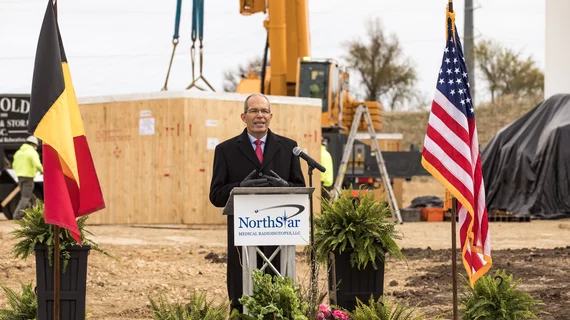NorthStar advances Mo-99 expansion efforts with new ‘milestone’ delivery
NorthStar Medical Radioisotopes recently announced a crucial development in its “first-of-its-kind” process to produce molybdenum-99, the nuclear medicine company said Tuesday.
NorthStar received two custom developed IBA Rhodotron TT 300-High Energy electron beam accelerators at its Beloit, Wisconsin-headquartered facility. Both are necessary to further the firm’s goals of expanding non-uranium-based radioisotope development and can also produce therapeutic radioisotopes such as actinium-225 and copper-67.
“Delivery of these electron beam accelerators to advance Mo-99 production marks a tremendous milestone event for NorthStar, nuclear medicine and the patients who rely on diagnostic imaging studies for their health,” President and CEO Stephen Merrick said in a statement.
As it stands, NorthStar is the lone commercial U.S. producer of Mo-99. And expansion projects currently underway in its Beloit location will allow it to more than double its current rate, the company said.
On the heels of the delivery, NorthStar held an event recognizing the occasion called “From Belgium to Beloit, Wisconsin.
“This is a very exciting time for NorthStar and those involved in nuclear medicine,” Merrick added. “We all share a vision to accelerate the future of patient health by providing innovative solutions to ensure reliable access to radioisotopes that can make a positive difference in healthcare for people around the world.”

